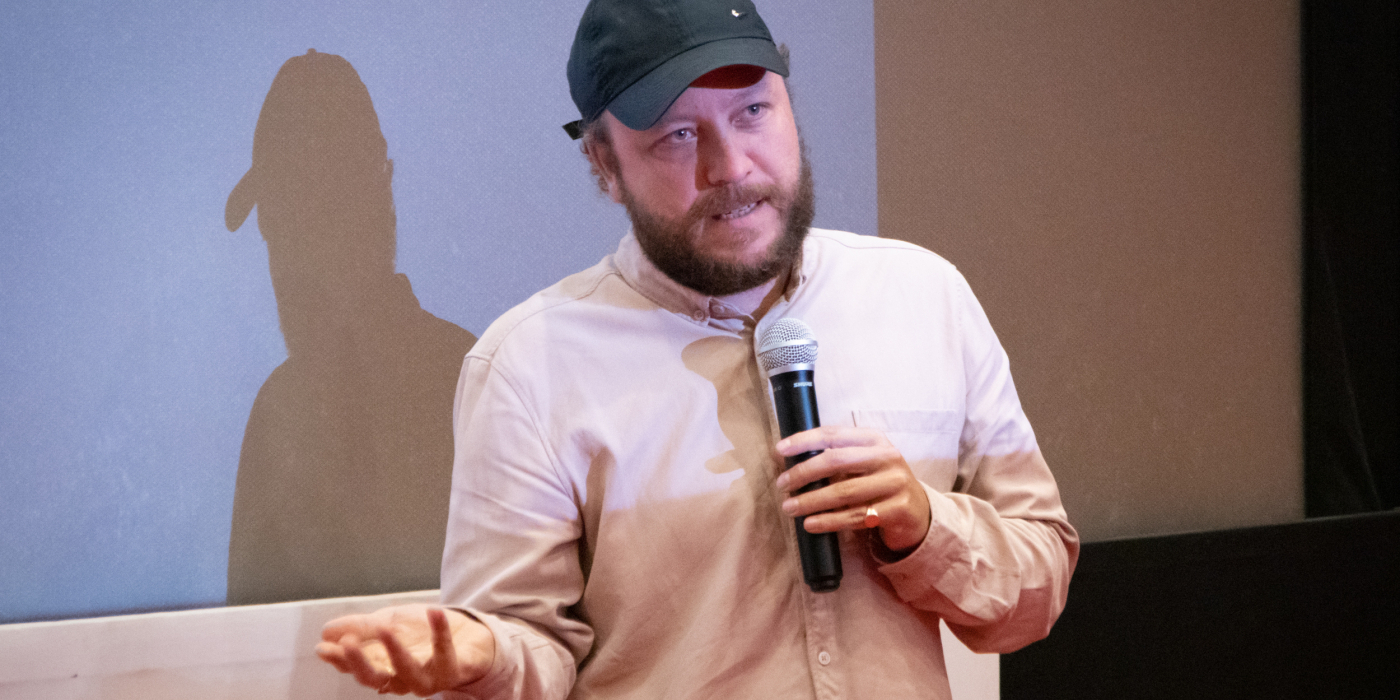12/08/2023
Le Fresnoy films were a highlight of DokuFest’s program and the selection of Louis Henderson's work brought the authorial approach to the spotlight. The films explore the ability of the body, of our mind as a means to express and connect with the surroundings while the imprint of self is on a quest for identity while proudly taking back in colonized spaces.
Louis Henderson as a filmmaker explores the subjects in a captivating way and puts a special focus on the question of historicity, post-colonialism, politics, anthropology and so much more. Opening up the space for new imaginations and connecting with his training at the London College of Communication and Le Fresnoy, he delivers an immersive voyage for the audience. Having a sense of intimacy, while distancing oneself from the plot, is an important question reflected in his practice. We had the chance to attend the conversation between Henderson and Pamela Cohn, on furthering and dissecting the idea of authorship.
Harold Bloom’s notion of anxiety of influence affects the way the director approach to claiming authorship. He expressed a feeling of uneasiness on having the task to define what he claims to be his work because his work is in one way or another connected with other influential works and authors.
Divided into two days, we saw “Logical Revolts”, “Black Code/Code Noir”, “All that is solid” “Evidence of things unseen but Heard”, “Bring Breath to the Death of Rocks”, and “The Wake”. To find out more about each one you can visit DokuFest’s website.
He said: “I was desperately influenced by so many things that fed themselves into my artistic creations whether they are texts or sound pieces or videos. Somehow the works I was making would be co-authored with all the different artists I was referencing or quoting”.
Henderson went on to explain his artistic practice and the detailed research undergoing his work, so to create layers of gaze and reflect the desire for everything to feel whole anew.
One of the other themes connecting his work is the careful duty of showcasing the representation of communities who want to take back what’s theirs. He spoke on the crisis of representation, as a topic that intrigues him, while noticing the lack of it in the creative world.
While seeing his film one could notice a common theme to search and find how poets, creators, and creative expressions spell themselves in a world where liberties are questioned and the constant demand for representation and reclaiming power lies underneath this selection.
By: Blerina Kanxha
Photo: Malda Lika



